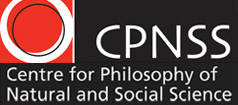The democratic process aims to make convincing collective decisions on the basis of individual preferences. There are a number of different democratic decision procedures via which such decisions may be reached.
In this talk at the Visions in Science Conference in Berlin, Christian List outlines three plausible requirements of democracy before going on to show that no democratic decision procedure is able to meet them all at once.
The Enlightenment thinker Nicolas de Condorcet famously observed that majority rule, our paradigmatic democratic decision procedure, has some desirable properties, but sometimes produces inconsistent outcomes. Revisiting Condorcet’s insights in light of recent research in social choice theory, List shows that there is a conflict between three initially plausible requirements of democracy: ‘robustness to pluralism’, ‘basic majoritarianism’, and ‘collective rationality’.
List goes on to illustrate how for all but the simplest collective decision problems, no decision procedure meets these three requirements at once. At most two can be met together. This ‘democratic trilemma’ raises the question of which requirement to give up. Since different answers correspond to different views about what matters most in a democracy, the trilemma suggests a map of the “logical space” in which different conceptions of democracy are located.
A background paper, ‘The Logical Space of Democracy’, is available here.




